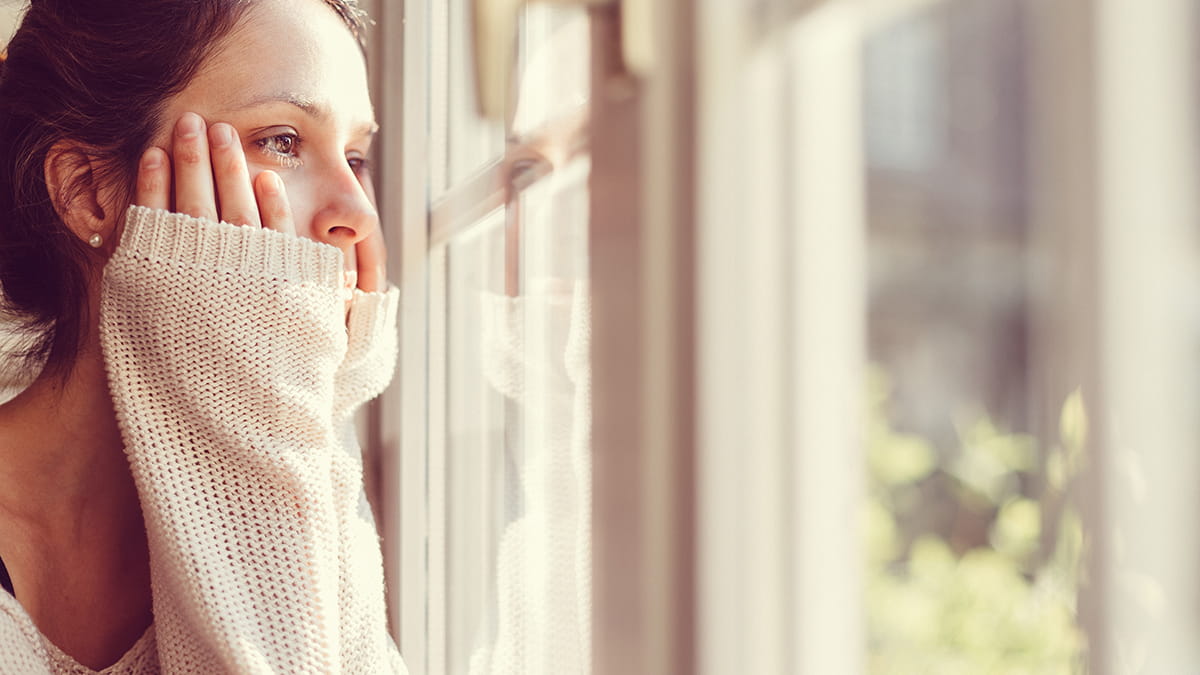Easy habits to fight off gloomy-weather depression
 You can make some easy changes to counteract feeling depressed during long stretches of gray days.
You can make some easy changes to counteract feeling depressed during long stretches of gray days.
We get our fair share of back-to-back-to-back gloomy days in the Midwest, huh?
For some people, that can lead to seasonal affective disorder (SAD), a type of depression that affects people at the same time each year, typically over the winter, says Ken Yeager, PhD, clinical director of the Stress, Trauma And Resilience (STAR) Program at The Ohio State University Wexner Medical Center.
Note for women: Seasonal affective disorder is more common for you than for men, and young people have a higher risk, with the condition starting most often in their 20s.
"People have a circadian rhythm, or biological clock, that is driven by serotonin and melatonin levels and can be thrown off course by prolonged dreary weather,” Yeager says.
A quick lesson on serotonin and melatonin: Levels of serotonin, a chemical messenger that your body produces for your nervous system, are thought to affect mood and appetite. Your body makes the hormone melatonin in part to help you feel the urge to sleep and to wake.
Low amounts of sunlight may trigger a reduction in serotonin, which can affect your mood, Yeager says. Gray days also can wreak havoc on the body's melatonin levels, making it harder for some people to get started on dark mornings.
If a lack of sunshine leaves you feeling lethargic and down, don't worry. Yeager has some simple antidotes:
Get outside
A daily walk does wonders for boosting your mood. So bundle up or pull on some rain boots and get out there.
The exercise releases endorphins, chemicals that spark a positive or euphoric feeling in the body.
For a better start to the day, get outside within a couple hours of waking up. The morning sunlight exposure keeps that body clock on track. Even taking the long way from your car to your workplace could make a difference.
Let the light in
It’s easy to choose to stay cocooned when it’s dreary, but try to flood your home or office with as much light as possible.
When curtains are drawn or blinds are closed, you don’t benefit from any natural light that's out there. If necessary, rearrange your interior to maximize any sunlight that filters through on cloudy days.
Try out light therapy
When there's little or no natural light, you may need to create some of your own. Simply purchase a light box, which mimics the natural outdoors, and position it by your desk or chair for about an hour each day.
The light box turns off the melatonin production and helps boost the serotonin in your body.
Prices range from $50 to $500, according to Yeager, who suggests trying the least expensive model first. Or ask your physician to recommend a model that's right for you. Choose one that filters out harmful ultraviolet (UV) light.
Don't be a hermit
Stay social and active through the stretches of cold, rain and gray. Sign up for a class, recruit an exercise buddy or schedule regular outings with friends.
"The more you interact with other people, the better off everybody will be," Yeager says.
"That interaction stimulates a feeling of cohesiveness, and you find out that other people are experiencing the same thing."
If you can, treat yourself to a vacation
Whenever possible, head for a sunny destination. Wherever you go, keep in mind that planning the trip is half the fun and a good mood-booster as well.
"Even a weekend getaway is helpful," according to Yeager. "It changes your environment, gets you moving and gets your blood flowing."
Ask your doctor about vitamin D
It may be helpful to take vitamin D during the winter months. Produced in response to sunlight, the vitamin helps your body absorb calcium and benefits your immune system.




